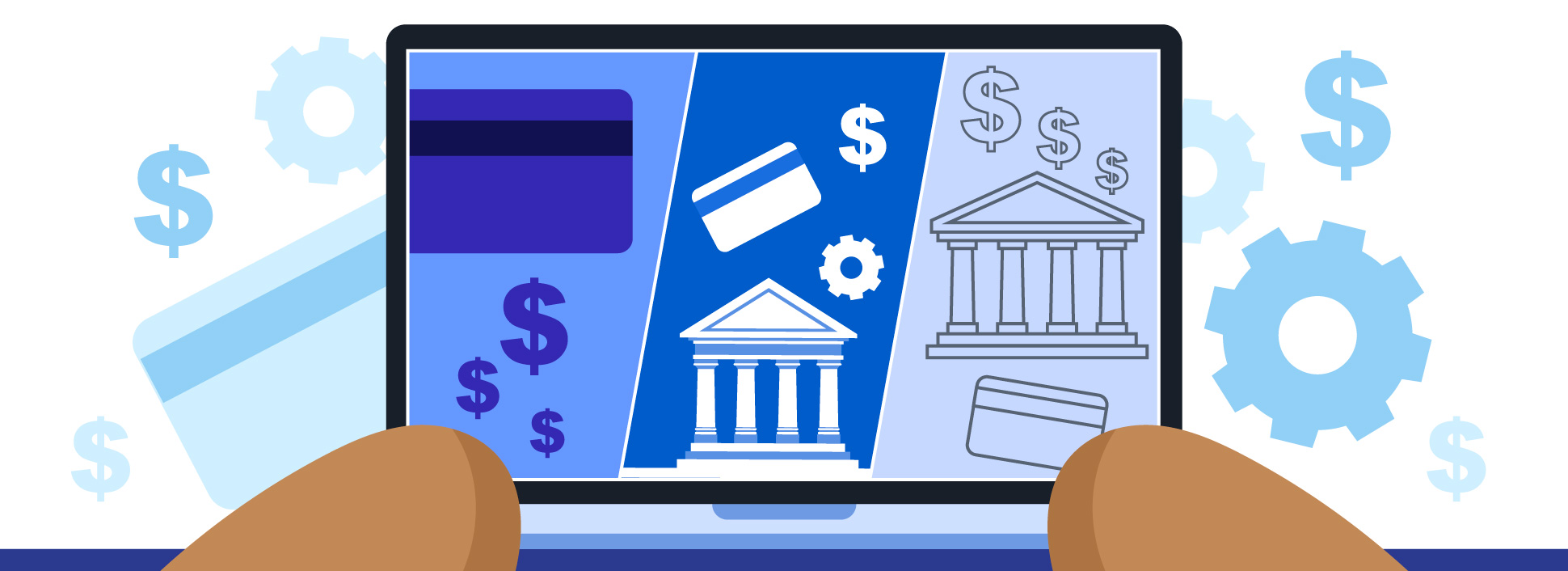Mercury Discounts
Mercury Discounts: Unveiling the Power of Cost Reduction
Definition Of Mercury Discounts
In the realm of commerce, Mercury Discounts are a strategic pricing technique employed by businesses to offer consumers reduced prices on goods and services. These discounts act as tempting incentives for potential customers, motivating them to make purchases they might otherwise hesitate to make. Whether it’s a percentage-based discount, a dollar amount reduction, or a buy one, get one free offer (BOGO), Mercury Discounts serve as alluring marketing tools that captivate the attention of shoppers worldwide.
Importance Of Discounts In Consumer Behavior
Discounts have become an integral part of modern consumer behavior. They elicit feelings of excitement and gratification while providing shoppers with tangible benefits such as cost savings and enhanced purchasing power.
By offering discounts, businesses can tap into consumers’ desire for value and affordability. Moreover, these reductions influence buying decisions by creating a sense of urgency among consumers who wish to take advantage of limited-time offers.
Overview Of The Outline Structure
This article will delve deep into the realm of Mercury Discounts by exploring their historical context, various types, and the benefits they bring to both businesses and consumers. It will shed light on how these discounts attract customers and increase sales, build customer loyalty and retention, as well as clear inventory effectively.
Furthermore, we will discuss strategies for implementing discounts in an impactful manner through timing considerations and targeted marketing campaigns. By examining these aspects comprehensively, this article aims to provide readers with valuable insights into harnessing the power of Mercury Discounts effectively in today’s competitive marketplace.
Understanding Mercury Discounts
Historical Background And Evolution Of Discount Culture
Discounts have a rich and fascinating history that dates back to ancient civilizations. The concept of offering reduced prices or special deals to attract customers can be traced back thousands of years.
In ancient Mesopotamia, for example, clay tablets have been found containing records of discounted sales on various goods. These early merchants recognized the power of discounts in stimulating demand and fostering customer loyalty.
Over time, discount practices evolved alongside advancements in commerce and trade. In medieval Europe, market towns would hold weekly or annual fairs where merchants would offer discounted prices to encourage trade.
Fast forward to the 19th century, industrialization and increased competition brought about the rise of modern retailing and mass production. With large-scale manufacturing capabilities came the opportunity for businesses to offer discounts on a wider scale.

The Concept Of Discounts In Ancient Civilizations
The concept of discounts in ancient civilizations was rooted in the desire to incentivize sales and foster customer loyalty. Merchants recognized that by offering reduced prices or special deals, they could attract more customers and increase their profits.
In ancient Rome, for instance, sellers would offer “merces venaliciae,” which were temporary price reductions aimed at attracting buyers during periods of low demand. These early discount strategies showcased an understanding that adjusting prices could influence consumer behavior.
Similarly, ancient Chinese merchants practiced “biaohu,” which involved marking down goods with red characters indicating special offers or discounts. By employing these tactics, they enticed shoppers into making purchases while simultaneously clearing out excess inventory.
Emergence Of Modern Discount Practices
The emergence of modern discount practices can be attributed to several factors such as increased competition among retailers and advancements in marketing techniques. In the late 19th century, pioneers like John Wanamaker introduced fixed-price systems and began advertising sales events to attract customers. However, it was the advent of the 20th century that truly revolutionized discount culture.
Department stores, such as Montgomery Ward and Sears, Roebuck & Co., started offering mail-order catalogs with discounted prices on a wide range of products. This innovative approach not only opened up access to goods for rural customers but also laid the groundwork for modern-day e-commerce.
With the rise of technology and the internet, online retailers like Amazon further transformed the discount landscape. The convenience and accessibility of online shopping allowed for dynamic pricing strategies and personalized discounts based on consumer behavior patterns.
Types Of Mercury Discounts
Mercury Discounts can be categorized into three main types: percentage-based discounts, dollar amount discounts, and buy one, get one free (BOGO) offers or variations. Percentage-based discounts are among the most commonly used in retail. Retailers often offer standard percentages such as 10%, 20%, etc., where customers receive a specified reduction in price on their purchases.
Additionally, special percentage-based offers are frequently employed to promote specific items or areas within a store. For example, a store might advertise a limited-time offer of 50% off selected items to attract attention and generate sales in those particular categories.
Dollar amount discounts provide customers with reductions in price based on fixed or tiered amounts. Fixed dollar amount reductions tend to be absolute deductions from the purchase price; for instance, “$5 off any purchase.” On the other hand, tiered dollar amount reductions involve offering different discount levels based on spending thresholds.
A common example is “$10 off purchases over $50,” incentivizing customers to increase their cart value by reaching a specific spending target. BOGO offers (buy one, get one free) have long been popular promotional tactics.
They typically involve purchasing one item at full price and receiving another item of equal or lesser value for free. Variations of this approach might include “buy one, get one 50% off” or “buy two, get one free.” These types of discounts are particularly effective in driving sales and encouraging customers to try new products or stock up on essentials.
Benefits And Impact Of Mercury Discounts
Attracting Customers And Increasing Sales
Mercury discounts play a crucial role in attracting customers and driving sales. The mere mention of discounts can trigger a psychological response in consumers, creating a sense of excitement and motivation to make a purchase.
When customers see a discounted price, it activates their desire for value and their perception of getting a good deal. This perception can significantly influence their decision-making process, ultimately leading to increased sales for businesses offering Mercury discounts.

Psychological Effects On Consumer Behavior
Discounts have a profound impact on consumer behavior due to the cognitive biases they exploit. One such bias is known as loss aversion, where individuals feel more motivated to avoid losses than to achieve gains. When presented with the opportunity to save money through Mercury discounts, consumers perceive this as avoiding a potential loss or missed opportunity.
This fear of missing out compels them to act quickly before the discount expires. Another psychological effect tied to Mercury discounts is the scarcity principle.
By offering limited-time promotions or limited stock items at discounted prices, businesses create an illusion of scarcity that heightens demand and urgency among consumers. Scarcity triggers the fear of missing out on an exclusive deal which motivates immediate action.
Building Customer Loyalty And Retention
Mercury discounts not only attract new customers but also contribute significantly to building long-term relationships with existing ones. By providing incentives such as loyalty programs or special discount offers exclusively for returning customers, businesses encourage repeat purchases while fostering customer loyalty.
Offering incentives like discount codes or exclusive deals can make customers feel valued and appreciated, reinforcing positive associations with the brand. When shoppers consistently receive value from these offers, they become more likely to remain loyal over time.
Encouraging Repeat Purchases Through Incentives
Mercury discounts create an environment that encourages repeat purchases. By implementing strategies such as tiered discounts based on spending thresholds or offering rewards for frequent shoppers, businesses motivate customers to return and engage in additional transactions. Incentivizing repeat purchases not only increases sales but also fosters a sense of loyalty and satisfaction among consumers.
Establishing Long-Term Relationships With Customers
Mercury discounts provide an excellent opportunity for businesses to establish long-term relationships with their customers. By consistently offering attractive discounts, companies can position themselves as reliable sources of value, making customers more likely to choose their products or services over competitors.
Furthermore, by leveraging data analytics and personalized marketing strategies, businesses can target specific customer segments with tailored discount offers that align with their preferences and past purchase history. This level of customization demonstrates a deep understanding of individual needs and preferences, further strengthening the bond between the customer and the brand.
Clearing Inventory And Reducing Waste
To avoid excess inventory or wastage, Mercury discounts can be employed strategically. Liquidation sales are particularly effective when a business needs to quickly clear out outdated or seasonal items that would otherwise take up valuable shelf space. By offering substantial discounts during these sales events, businesses effectively attract bargain hunters while minimizing losses from unsold inventory.
Seasonal or clearance discounts also assist in reducing waste by incentivizing customers to purchase products nearing the end of their shelf life or those that are no longer in high demand. This enables businesses to manage their stock efficiently without compromising profitability while providing consumers access to discounted goods they may not have considered otherwise.
Timing And Duration
Effective timing and the duration of Mercury Discounts play a crucial role in capturing the attention and interest of potential customers. Limited-time offers, known for their sense of urgency, create a compelling motivation for immediate action.
They instill the fear of missing out (FOMO) in consumers’ minds, driving them to make a purchase before the discount expires. Limited-time offers also help businesses generate buzz and excitement around their products or services.
Similarly, flash sales are short-duration discounts that occur unexpectedly or at specific times. These surprise sales further enhance the allure and exclusivity associated with Mercury Discounts.
Targeted Marketing Campaigns
To maximize the impact of Mercury Discounts, businesses need to employ targeted marketing campaigns that cater to specific customer segments. Personalized discounts based on customer preferences can be achieved by utilizing data analytics to identify individual shopping behaviors and preferences accurately.
By tailoring discounts specifically to each customer’s interests, businesses can establish a deeper connection and foster loyalty. Exclusive offers for loyal customers are another effective strategy within targeted marketing campaigns.
Recognizing and rewarding loyal patrons with exclusive discounts not only strengthens relationships but also encourages repeat purchases. Such gestures make customers feel valued while establishing a sense of exclusivity that can cultivate ongoing loyalty.
Conclusion
Mercury Discounts are powerful tools in attracting customers, increasing sales, building loyalty, and reducing inventory waste. By carefully implementing strategies such as limited-time offers and flash sales based on optimal timing, businesses can create a sense of urgency that drives consumer action.
Additionally, utilizing targeted marketing campaigns with personalized discounts tailored to individual preferences enhances customer satisfaction and fosters long-term relationships. In today’s competitive marketplace, leveraging these effective strategies allows businesses to remain relevant while delivering value to their customers’ lives.
With creativity and thoughtful implementation, Mercury Discounts have the ability to create win-win scenarios, benefiting both businesses and consumers. So, embrace the power of discounts and unlock the potential for success in your business endeavors.




